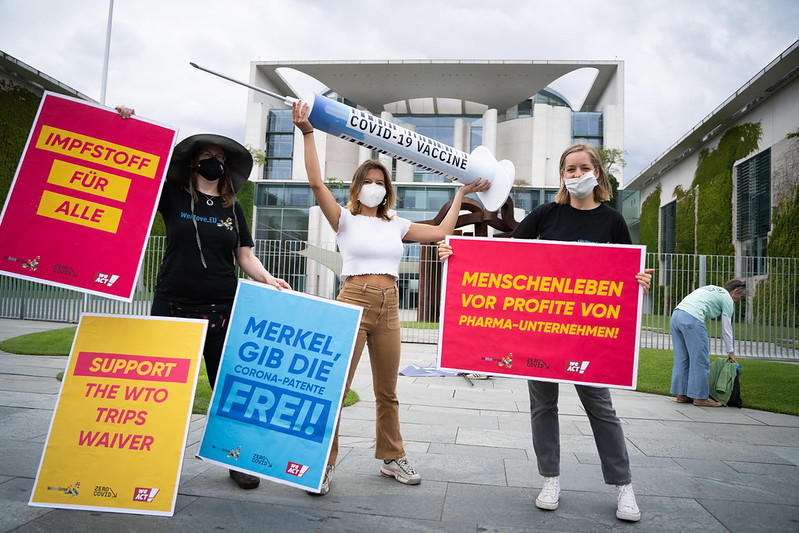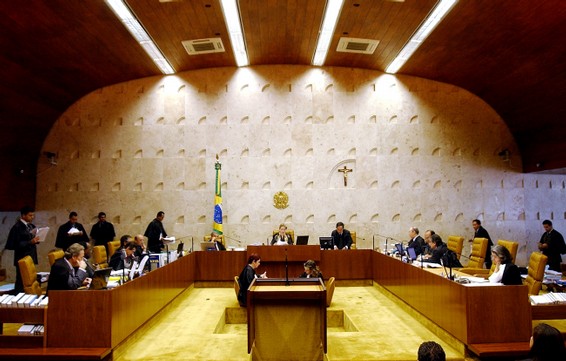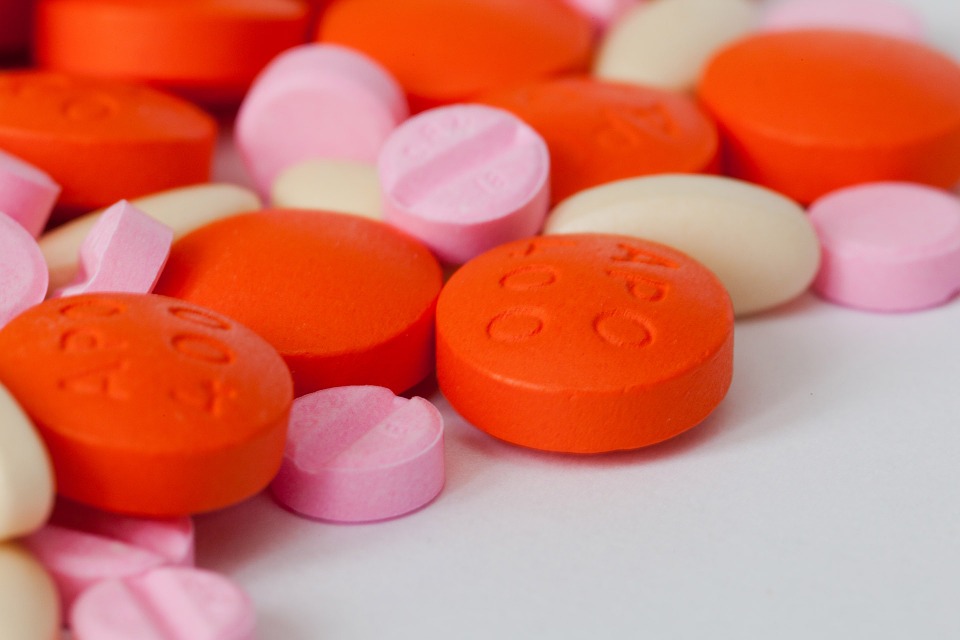In this article, MSc student in Health and International Development Devika Agarwal examines the unequal access to essential medicines created by the World Trade Organisation’s regulation on patents, from the HIV/AIDS epidemic to the COVID-19 pandemic.
Members of the World Trade Organisation (WTO) signed the Trade-Related Aspects of Intellectual Property Rights Agreement (TRIPS) into effect in 1995. Intellectual property rights (IPR) refer to the legal rights given to the inventor or creator to protect his invention or creation for a certain period. This proved to be disadvantageous for developing countries, or the global south, which faced high prices and low supply of medicines. Since its inception, the WTO has not provided remedies for these negative effects. Developing countries in this context create disincentives for developed countries to invest in the Research and Development (R&D) due to lack of profit potential; it was more profitable for leading pharmaceutical companies to invest in trade in developing countries where higher prices could be met. Patents also discourage smaller pharmaceutical corporations to produce drugs locally and offer lower prices to the people, enabling them to become competitors with large conglomerates. Voluntary differential pricing without compulsory licensure is thus a deterrent to access of medicines in low- and middle-income countries. Compulsory licenses are granted by governments for alternative production or importation of a generic version of a patented medical product without the prior consent of the patent holder. The TRIPS agreement marked a shift to treating life-saving medicines as consumer goods.
Patenting and lack of access to ARVs in developing countries
One of the most important examples of the harms of patenting is that of generic antiretroviral treatments (ARVs) for HIV/AIDS in the 1990s. At the time, patenting under the TRIPS agreement was well adopted by the West. However, South Africa was suffering from a peak in the HIV/AIDS epidemic. To solve this, the South African government authorised measures for parallel importation of patented drugs. The US government along with approximately 40 drug companies soon acted and filed a complaint in the court of South Africa. Their claim was that the provisions levied by the South African government violated the TRIPS agreement. The US eventually had to drop charges. Brazil is another such example, where the Brazilian compulsory licensing permitted the distribution of free ARVs. The Doha declaration (2001) on the TRIPS agreement was a welcome change by healthcare professionals and advocates, globally. The declaration validated countries to use compulsory licenses and other flexibilities under TRIPS. In this, countries are free to determine grounds of compulsory licenses as they deem fit to safeguard needs related to health.
Access to essential medicines or potentially life-saving drugs is limited for several reasons. These include fractured health system infrastructures, lack of healthcare professionals and workforce, weak regulatory regimes, corruption and even product diversion. Intellectual property rights further add to inaccessibility and unaffordability of medicines. The perceived interest of rich countries has created a disconnect between national and international intellectual property regulation, given the lack of resources for R&D in the global south. It also affects the global patterns of poverty and income inequality. This adds on to the age-old problem of the division between the global north and the global south, deep-rooted in the socio-political and cultural structures of the world.
Patents as incentives for cost recovery
The UN High-Level panel on access to medicines calls for de-linkages between R&D from drug prices. However, this proposal has been critiqued. In a commercial sense, patents are a way to drive recovery of money spent on R&D. Even so, looking at health and access to essential new medicines from a market perspective devalues the human rights arguments for making sure medicines are accessible. The main tension therefore lies in the economic and commercial perspectives that incentivizes corporations to charge exorbitant prices
Links between access and innovation
The existing systems establish links between innovation and rewards as opposed to innovation and ethical considerations of these rewards. If access to medicines of neglected diseases fell into the purview of profit motives by the global north, they would perhaps have seen more advantages in terms of R&D. Lucrative investments in health systems need to build channels of equitable access to maintain the core values of human rights. Neo-liberal economic theorists have also advocated for patents as a way forward for development. They maintain the notion that intellectual property will promote local research and development of medicines for indigenous diseases. One of the solutions of this could be the TRIPS plus agreement; a bi-lateral agreement between two countries. This solution is still not as viable as measures for generic competition. TRIPS plus is subjective, and can be ambiguous in its implementation, depending on relations between two countries. Efforts to promote generic competition is one of the most viable solutions to better access to medicines and treatment opportunities. This can be seen in the case of Indian supply of ARV treatment contributing dramatically to lower prices of the drugs.
COVID-19 and the politics of vaccines
The COVID-19 pandemic has highlighted inequitable access to vaccines. The United Kingdom and Canada, for example, are countries that ordered the greatest number of vaccine doses per person from pharmaceutical companies: the UK had five doses per person on order. High-income countries are estimated to be hoarding in excess of 870 million doses of vaccines of which US is estimated to be hoarding nearly 500 million.

Similarly, there was a trend in inequitable access to vaccines during the H1N1 virus. To attempt to counter vaccine inequality during the COVID-19 pandemic, the WHO, the Coalition for Epidemic Preparedness Innovations and GAVI, the Vaccine Alliance initiated an endeavour called COVAX for global access. The initiative was a failure, but such considerations are important to look beyond the framing of access through the lens of profits and instead, look at them in terms of issues about human rights and saving lives. With debates about the decolonization of global health, it is imperative that we take more inclusive steps for access to essential medicines rather than widen the gap between the global north and the global south even further.
The views expressed in this post are those of the author and in no way reflect those of the International Development LSE blog or the London School of Economics and Political Science.
Photo credit: Ruben Neugebauer/ Campact on Flickr.





